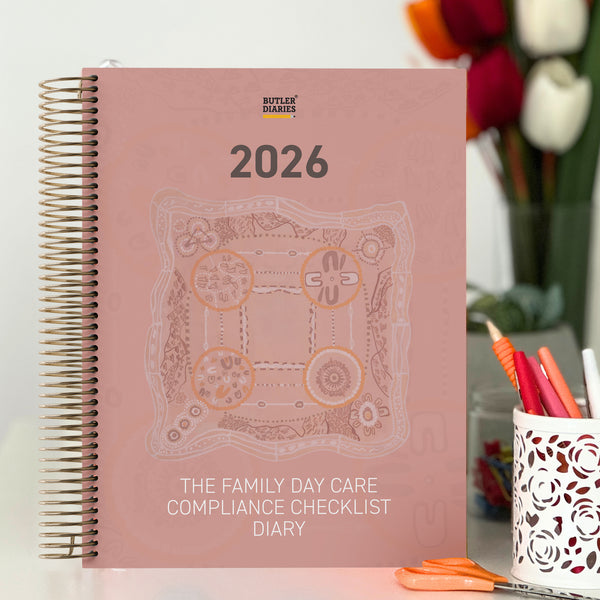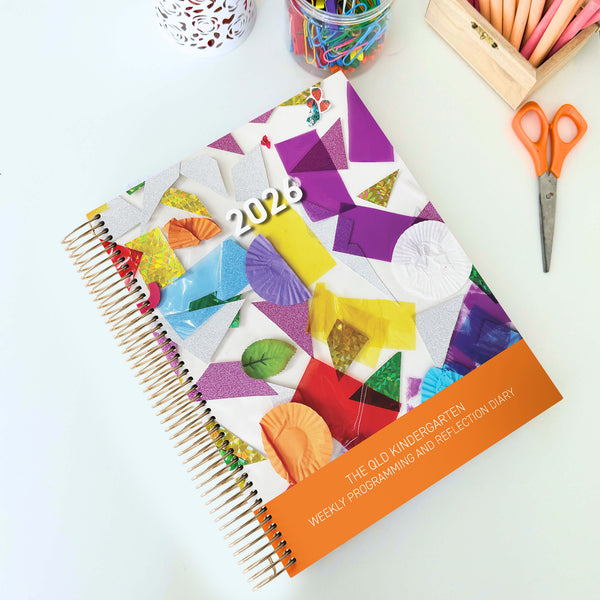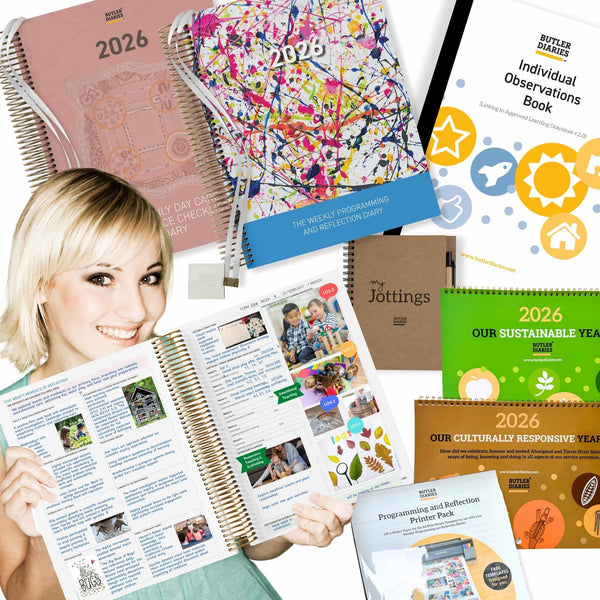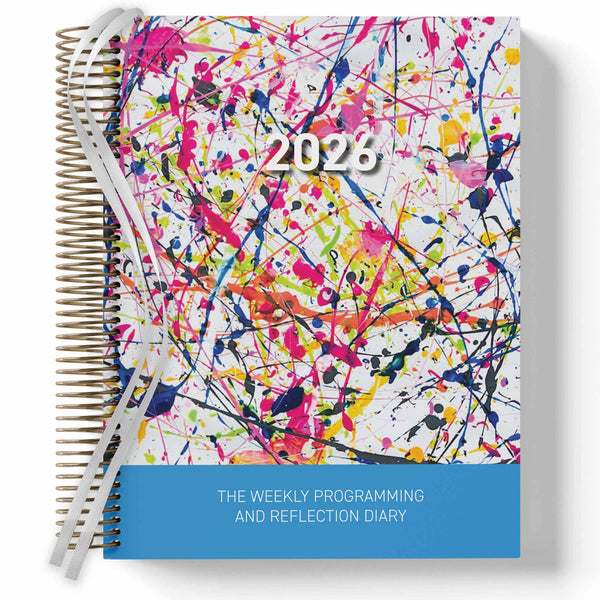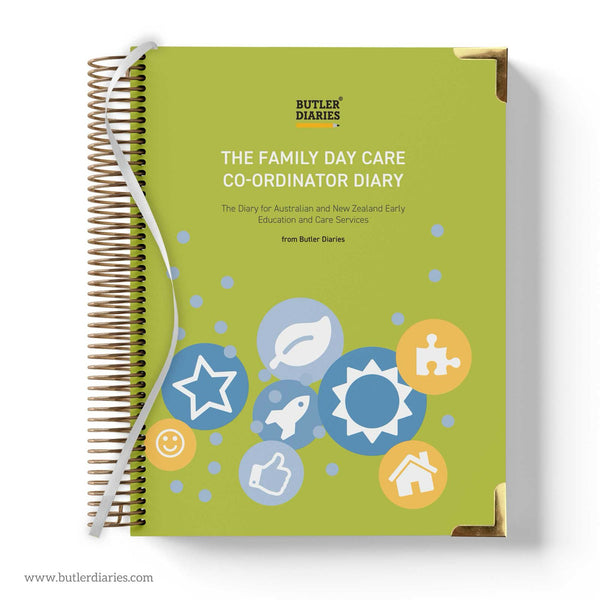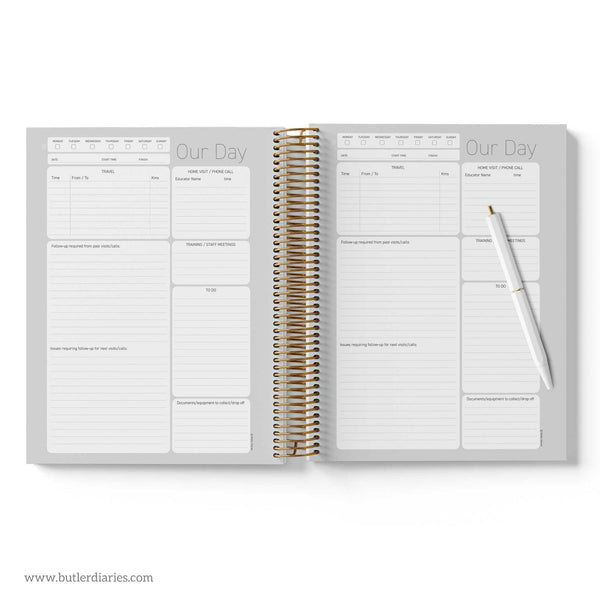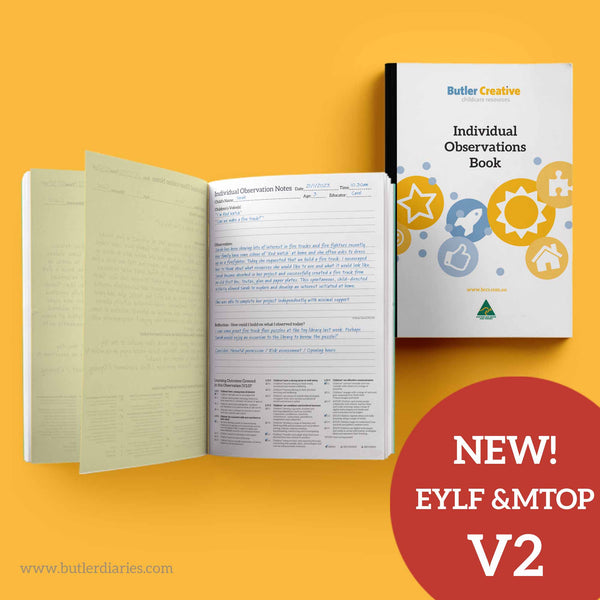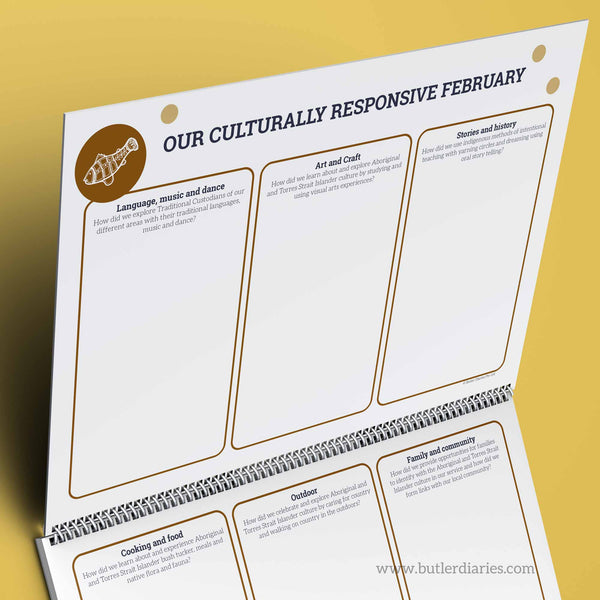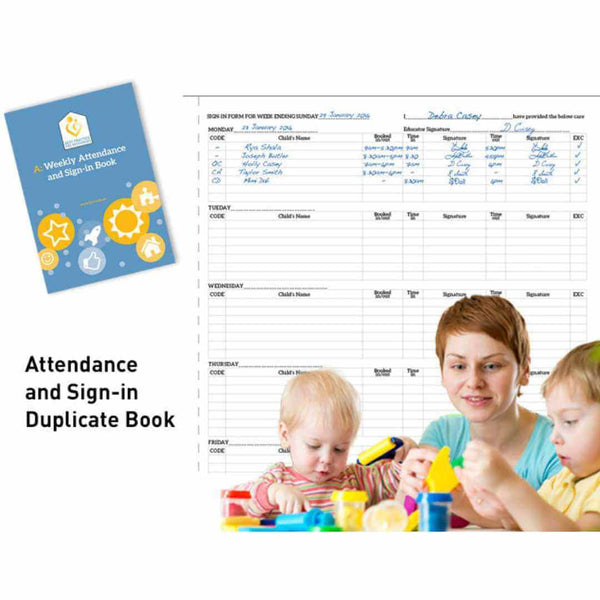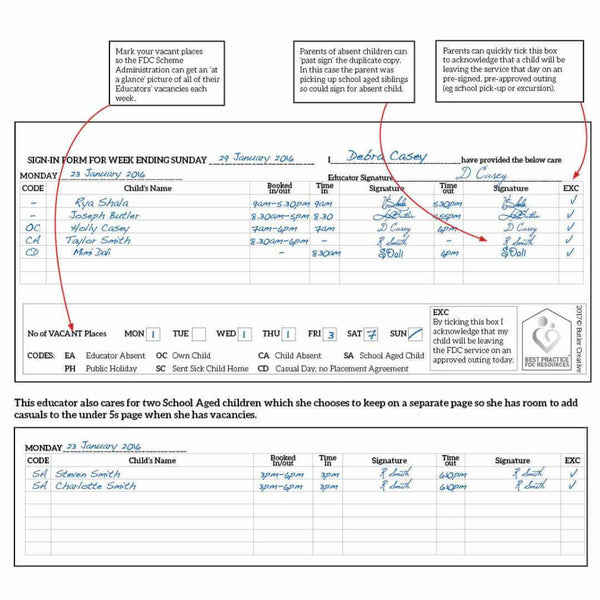Family Day Care (FDC) educators play a crucial role in the Early Childhood Education and Care (ECEC) sector, offering a unique and personalised form of child care within a home environment. Their duties extend beyond mere supervision, encompassing a broad range of responsibilities that contribute to the development and well-being of the children in their care. Here, we explore the key duties of a Family Day Care educator.
1. Providing a Safe and Nurturing Environment
The primary duty of a Family Day Care educator is to ensure that the children in their care are safe and secure. This involves maintaining a hazard-free environment, adhering to safety standards, and being vigilant at all times. Creating a nurturing atmosphere where children feel valued and cared for is equally important. This sense of security helps children to thrive both emotionally and socially. The Family Day Care Compliance Checklist Diary can help you maintain a safe environment.

2. Planning and Implementing Educational Programs
FDC educators are responsible for planning and implementing educational programs that are tailored to the needs and interests of each child. These programs should align with the Early Years Learning Framework (EYLF) and promote children's development across all areas: cognitive, social, emotional, physical, and language. Activities might include storytelling, creative arts, outdoor play, and problem-solving exercises. For a creative program that can be completed in as little as 10 minutes per day and capture your cycle of planning with program and reflections, use the Weekly Programming and Reflection Child Educator Diary.

3. Observing and Documenting Children's Progress
Continuous observation and documentation are vital components of an FDC educator's role. By monitoring children's progress, educators can identify developmental milestones and areas needing support. This documentation, often compiled into learning journals or diaries, is essential for tracking growth and providing parents with detailed reports on their child's development. The Individual Observation Book captures observations quickly, prompts reflection and extension and links to EYLF outcomes.

4. Communicating with Families
Effective communication with families is a cornerstone of family day care. Educators must build strong, collaborative relationships with parents and guardians, keeping them informed about their child's daily activities, progress, and any concerns. Regular updates, meetings, and open lines of communication help to create a cohesive support system for the child's development. Capture general family communication in your Family Day Care Compliance Checklist Diary while the Weekly Programming and Reflection Child Educator Diary captures family input into your program. You can use our combined FDC Combined Compliance Checklist and Programming Diary which includes daily checklists and monthly programming and reflection.

5. Maintaining Regulatory Compliance
Family Day Care educators must comply with various regulations and standards set by state and federal authorities. This includes adhering to child-to-educator ratios, maintaining accurate records, and participating in regular training and professional development. Staying informed about changes in policies and best practices is essential to ensure high-quality care. Download the compliance eBook from the Family Day Care Compliance Checklist Diary product page to find out how it could assist you in meeting your obligations.

6. Promoting Health and Well-being
Promoting the health and well-being of children is another critical duty. This involves preparing nutritious meals and snacks, encouraging physical activity, and teaching children about hygiene and self-care. Educators must also be prepared to manage illnesses and administer first aid when necessary, following proper procedures and guidelines. Our Carbon Books can support medical records not covered in your compliance diary.

7. Fostering Social and Emotional Development
FDC educators play a significant role in fostering social and emotional development. They help children develop skills such as sharing, cooperation, and empathy. Creating an inclusive environment where children feel respected and understood is key to nurturing their social competence and emotional resilience. Use the Weekly Programming and Reflection Child Educator Diary to show how you are fostering development.

8. Encouraging Independence and Self-Esteem
Supporting children in becoming confident and independent is a fundamental goal for FDC educators. This involves providing opportunities for children to make choices, take on responsibilities, and celebrate their achievements. Encouraging self-esteem and independence helps children to become self-assured and capable individuals. The Weekly Programming and Reflection Child Educator Diary captures children's input into the program every day.

Conclusion
The duties of a Family Day Care educator are multifaceted, requiring a blend of care, education, and communication. By creating a safe and nurturing environment, planning educational activities, maintaining regulatory compliance, and fostering development, FDC educators make a profound impact on the lives of children and their families. Their dedication and expertise are essential in shaping the future of young learners in a home-based setting.









